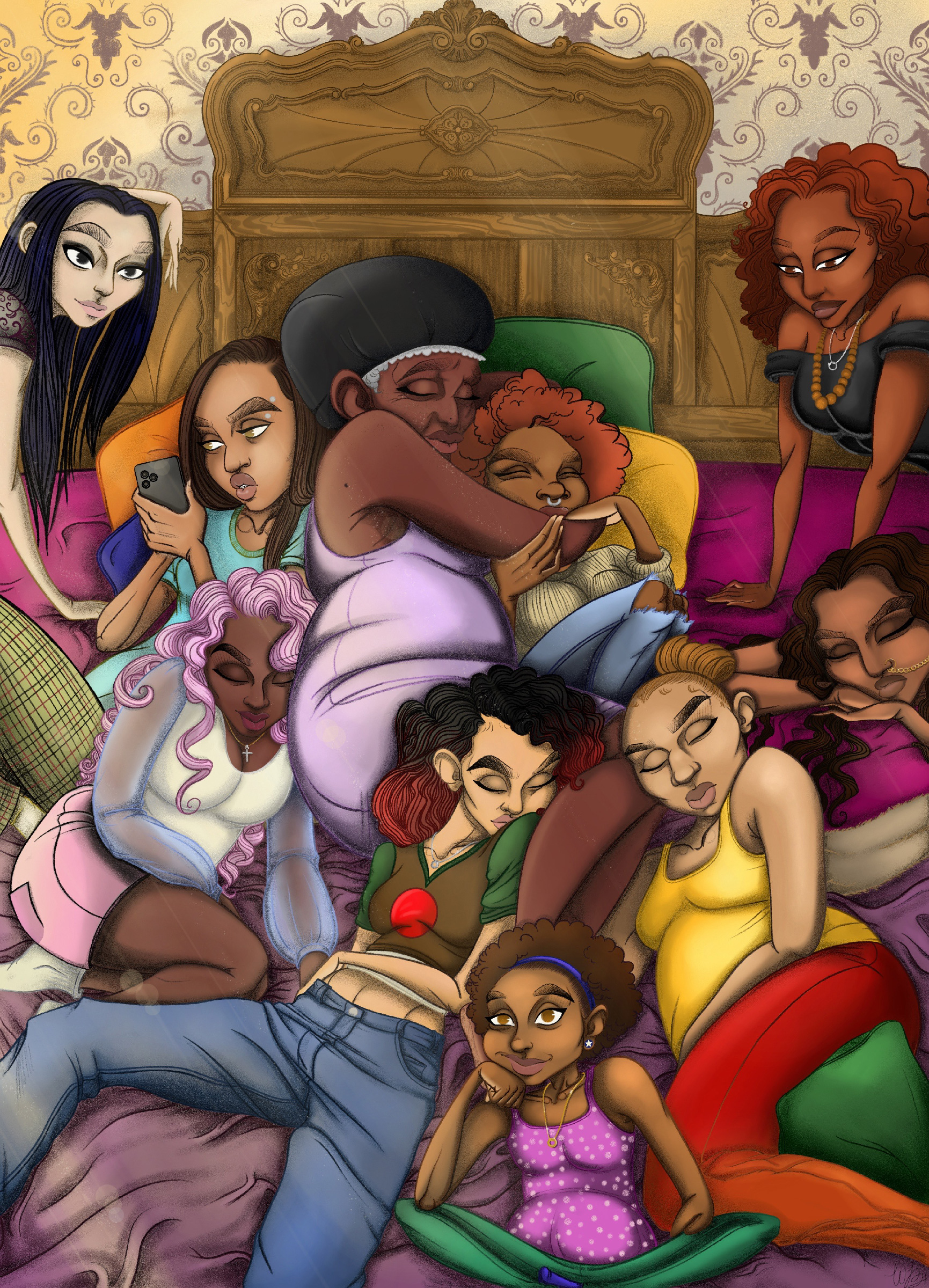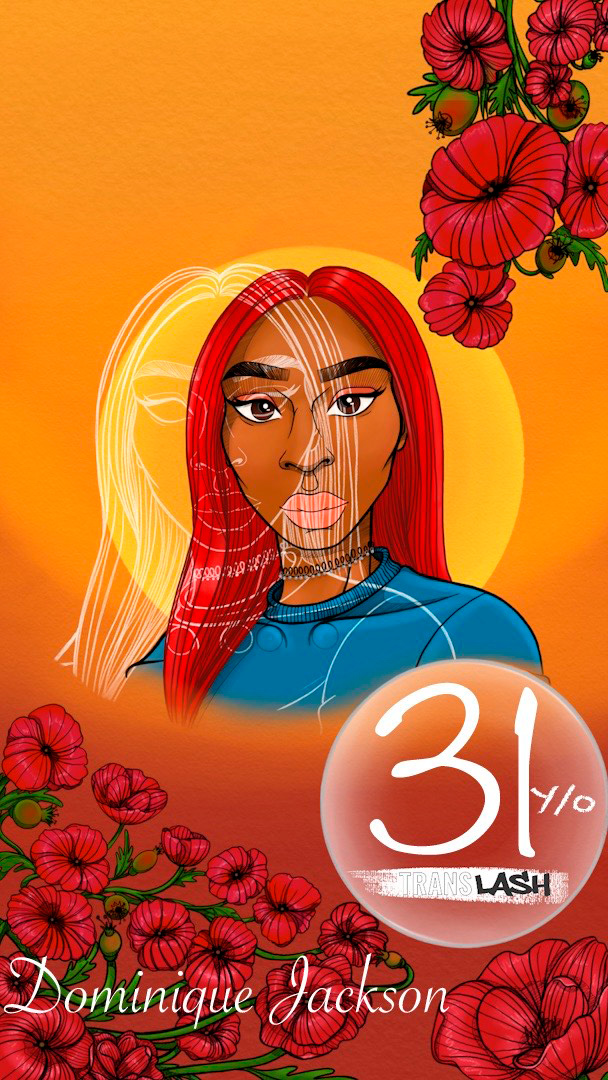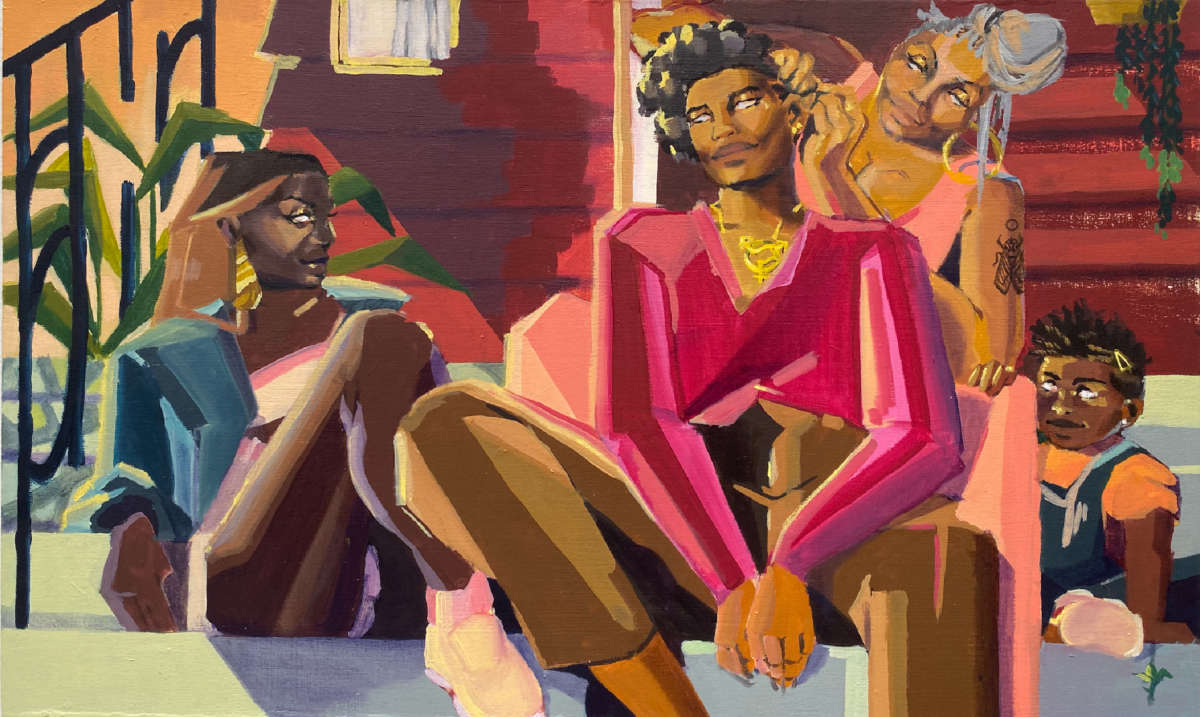On Transgender Day of Remembrance (TDOR), which is held each year on November 20 around the world, trans and nonbinary people gather with their families and allies to light candles and say the names of trans people killed by anti-trans violence over the past year.
While the list grows longer each year, the demographics of the people killed tend to stay the same: women and/or femmes; people who struggled to survive on next-to-no money; Black, Latinx, and/or Indigenous folks; and immigrants. There’s no Census or large study to track the life expectancy of queer, trans and gender-nonconforming people; but considering the disproportionate rates of violence, depression, suicide, employment discrimination and incarceration, common wisdom among community members holds that if you’re a trans person of color, living past the age of 35 is a feat.
Several groups, starting with BreakOUT! in New Orleans, have decided to observe “Transgender Day of Resilience” instead of “Transgender Day of Remembrance,” to honor the people who survive against the odds instead of the norm: acknowledging their struggles only when they’re gone.
Resilience is a must-have quality of those who survive to the next TDOR. They face right-wing attempts to kill health care for trans people in states such as Alabama and Arkansas. Meanwhile, getting a living wage job is harder than it already is for non-trans people, even if they’re fortunate enough to be in one of the few places with LGBT employment nondiscrimination laws. Harassment by police for “Walking While Trans” is an everyday worry. And anti-trans hate-posting on social media by so-called trans-exclusionary radical feminists (TERFs) such as JK Rowling, the billionaire author behind the Harry Potter series, is an everyday encounter online.
Jemma DeCristo is a housing activist and one of a handful of trans professors in the entire University of California system who works in the African American and African Studies department at UC Davis. She spoke with Truthout about getting beyond grief and moving toward material change for trans and queer people.
Toshio Meronek: What have the past few years of more positive mainstream representation of trans/queer people — in media, government and the nonprofit world — brought most trans/queer people?
Jemma DeCristo: I think representation has brought, to answer your question, a mass delusion in a certain kind of way. The way I think about it is this: I always remind myself representation is never actually for the people it represents.

For people that are old enough to remember, it’s like when they introduced Black sitcoms on television. You know, there were some episodes of shows that snuck in that were interesting. But the idea to have them on was to show white people, after the Civil Rights Movement, “Hey, Black people are civilized, and they’re just like us,” you know, “They have mothers and fathers, and they go to work and all those things.”
Those shows in the ‘70s have many important representations of Black people; people will go, “Oh, that show was really amazing, it was really funny.” But I think the joy that we get from representation as Black trans women, as Black people, is almost kind of incidental, but it is sometimes hard for us to avoid thinking that because we’re on screen, our lives are getting better, we’re “moving on up,” to use another ‘70s reference.
The show Pose, you know, whatever people feel about the quality of the show or whatever — I don’t really think that that show has an impact on, you know, ending or doing anything to stop the scale or scope of the violence against us.
And this is also often the case — right? — is that there’s this prurient quality to representation. The majority of people that watch any of these shows are probably not of the minority group that the show represents. And then the majority get curious about the people in the show. And I don’t really think it necessarily benefits the people of — a show like Pose — I don’t think it necessarily benefits Black trans women, but it definitely piques people’s curiosity about us in a way that I don’t think is synonymous with or attached to real material change or political solidarity. It’s a curiosity, or like a prurience, or a passing interest. And yeah, so I think that’s where we’re at.
I think there’s this other thing that’s lost in representation is, — I want to call it a “countercultural” aspect — that makes people genuinely seek each other out to find the mix of people who genuinely need each other, because they don’t have the mainstream representation. They have to look towards each other, rather than look at a TV or iPhone screen for connection.
Representation and maybe more so celebrity, whether political celebrities or actors, becomes something we often look to, wrongfully,as this kind of apparatus of care. It’s supposed to make us feel good. It’s supposed to represent, “Hey, that person’s famous, so we are being taken care of in the world,” even though that’s not often the case. And it’s funny, too… it often is the case that that individual person [the few trans influencers, politicians, actors] is not being taken care of, either.
Pose actor Indya Moore got so much hate for mentioning support for Palestine online.
Right, and actions like that are too rare. I think that, you know, we could talk about this in the same way as we do the nonprofit-industrial complex: I think public figures are absolutely meant to represent the interests of a minority group, but also silence the more radical views in those groups, and you definitely see what happens.
And yet, there’s a belief that suddenly trans people are in a position of power over the majority, that’s caused a backlash, in the case of the anti-trans health care laws, or the rise in murders. And things are not getting better for many people. What would your vision be for TDOR, as an event, as a sort of holiday?
I think there’s a place for sorrow, but it’s very, you know, it’s very, like ACT UP [The AIDS Coalition to Unleash Power], like I think it would be cool if our grieving was inextricably tied to direct action. I think that is something that’s a bit missing in a general way and is less present right at this moment. And we saw some resurgence of that last year [during the uprisings of summer 2020] but then also all the conditions of life that are getting worse in a general way are specifically falling on the most marginalized. You know, things like unemployment, income disparity, evictions. Housing insecurity is a big one that falls disproportionately onto Black and Brown trans women, and that not only reduces your quality of life, but increases your likelihood of being exposed to various forms of violence. So some of it is also of course, the generalized condition of things getting worse, particularly just proportionally getting worse for most targeted, like Black trans women.
When comparing all the U.S. states and the territories that it claims, Puerto Rico has the highest reported number of deaths of trans women or nonbinary people per capita. And I would suspect not a lot of people in the U.S. think of Puerto Rico and it’s certainly not paid as much attention as the continental U.S. And beyond that, wherever the U.S. is intervening, we don’t know the number of deaths, but as you mentioned, trans people disproportionately feel the fallout of more generalized problems, like the wealth hoarding that creates houselessness.
A big part of the violence against trans people is the military-industrial complex, and [military] base culture. In the Philippines and in Saipan, Okinawa, there’s an incredible precarity if you’re a trans person.
I often think about the Pakistani trans women-led organizing against U.S. drone strikes killing and injuring people back during the Obama administration. And anywhere we [in the U.S.] have defense department technology or contractors, which is everywhere, there are so many people who will die, who do not make the TDOR list.

Another thing that representation does is it deludes us into thinking there’s greater and greater progress, which actually hides the greater and greater violence. There’s this really excellent book that’s just come out called Atmospheres of Violence that speaks to specific cases, and that the progress narrative we’re fed is a sort of facade. I think that’s a really important function of our political reality in a broader way that has to be understood, and is particularly salient if you look at the case of Black trans and gender nonconforming people.
Who are you celebrating on this Transgender Day of Remembrance/Resilience?
The one person I think of, and I’ve always wanted to interview her, was Jackie Shane, the Black trans musician from Nashville, who lived most of her life in Canada. A few years ago, I had plans to go interview her, and then she literally passed away. (I want to say it was just before COVID [in 2019].) And she was such an interesting figure and had such an interesting life. I don’t think she was as apolitical, but she was a little like Little Richard, and she’d just have these little flourishes in her music and interviews that hinted at her transness. And she’s such a fashion inspiration.
And then someone who’s still with us is Tracy Africa, formerly Tracy Norman, who was the first Black, trans model. She was stealth [not out] — and I think that’s an interesting time for me, that moment before there were representational moments and people that existed outside of, as important as it is, the common reservoir for us [as Black trans/queer people in living in cities] that is ball culture. You know, that’s kind of the one cultural reference people tend to have. I have, maybe despite, or because of, my politics, I have a penchant for the stylish I hold. I’m holding the political, but also these trans style icons who were political in their own ways in my thoughts.
Our most important fundraising appeal of the year
December is the most critical time of year for Truthout, because our nonprofit news is funded almost entirely by individual donations from readers like you. So before you navigate away, we ask that you take just a second to support Truthout with a tax-deductible donation.
This year is a little different. We are up against a far-reaching, wide-scale attack on press freedom coming from the Trump administration. 2025 was a year of frightening censorship, news industry corporate consolidation, and worsening financial conditions for progressive nonprofits across the board.
We can only resist Trump’s agenda by cultivating a strong base of support. The right-wing mediasphere is funded comfortably by billionaire owners and venture capitalist philanthropists. At Truthout, we have you.
We’ve set an ambitious target for our year-end campaign — a goal of $230,000 to keep up our fight against authoritarianism in 2026. Please take a meaningful action in this fight: make a one-time or monthly donation to Truthout before December 31. If you have the means, please dig deep.
